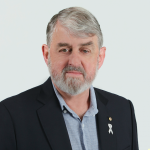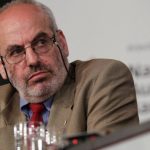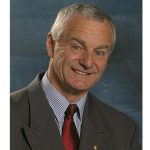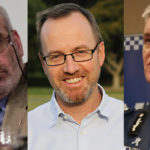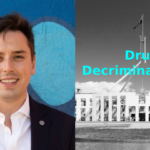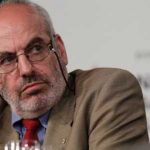Richard Branson Calls on NSW to Decriminalise Drugs, “For God’s Sake”
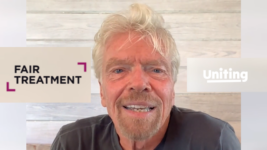
“For God’s sake, do something about it,” global entrepreneur Richard Branson told NSW premier Chris Minns, as he ended a video message sent to the constituencies of the ACT and this state, after having pointed out that our part of the globe has done exceptionally well, despite his recent stalling.
The message was delivered via Uniting NSW.ACT, as the Virgin founder was at Sydney Town Hall in October 2018 to launch Fair Treatment, a drug decriminalisation campaign led by the church, which is further supported by 71 other partner organisations, including the NSW Bar Association.
Branson described the decriminalisation of personal drug possession and use that’s just taken effect in the ACT as “incredible”.
And for those in NSW, it certainly does strike one as so, especially due to the shadow our own premier has cast over this achievement.
The UK billionaire doesn’t mention the NSW premier. However, his last few lines are obviously directed towards Minns, as he entered office in March this year having promised sensible drug law reform, but then reneged on some key pledges when questioned by Murdoch in September.
The premier backflipped on the key issue, decriminalising drugs, stating he had “no mandate” to put this evidence-based policy to the vote and he further pushed back the promised NSW drug summit to the end of term.
And then, as if on cue, drug-related deaths at festivals started occurring.
Health before votes
“Congrats also to Fair Treatment,” Branson said, “the members and leaders of the Lived Experience Reference Group, to the 71 partner organisations and all those who have championed these changes. Your work is so important.”
“But more needs to be done and I can’t wait to hear when NSW has held its long promised drug summit and listened to the evidence about sensible, compassionate and effective drug laws,” the entrepreneur directed to Minns.
“It’s time to decriminalise now and put people’s health first.”
Both NSW majors, Labor and the Liberals, have long approached drug policy with the attitude that zero-tolerance equals votes, while reforms mean less.
So, state parliament has become a theatre of politicians on both sides trying to strike the toughest pose, despite the dead youths piling up around them.
The Murdoch press raised the issue of the ACT enacting decriminalisation laws with the newly minted premier, who, just like clockwork, took decriminalisation off the drug summit’s agenda immediately, and postponed that meeting until closer to the next round at the polls.
The folly in Branson having to pitch in his support against the kneejerk reaction of the NSW Labor leader is that Minns ran specifically on a platform promising drug reform and key members of his party had been campaigning on it, which means pre-election reforms must’ve equalled more votes.
But instead of sticking to his guns and allowing his colleagues’ who’d spoken out in defence of reforming the state’s drug laws to actively follow through on their promises, Minns did what anyone would do when the Daily Telegraph put such questions to them and acted like a Coalition premier.
The writing’s on the wall
But why should Minns listen to some British billionaire in regard to drug law reform anyway?
Well, Branson was one of the commissioners making up the Global Commission on Drugs Policy, when it launched its first report in 2011, declaring the drug war a failure, and he continues to be part of the panel.
Branson is the only entrepreneur on the commission, as most of the other figures making up the body are former heads of state or members of the United Nations. And right now, former New Zealand prime minister Helen Clark chairs the body.
Kofi Annan, the former UN secretary general, and George Shultz, the former US secretary of state, were part of the commission’s 2011 lineup, and in 2021, there were 14 former heads of state on the panel, including current Timor-Leste president José Ramos-Horta.
In 2011, the 40th anniversary the Nixon-launched drug war, the panel condemned prohibition, revealing that rather than preventing use, it’s led to growing consumption, more dangerous substances, the creation of huge criminal networks, mass incarceration and it prevents seeking rehabilitation.
The first report was also released the year that Portugual’s policy of drug decriminalisation turned ten. And at the time the nation removed criminal sanctions for people who use drugs being in possession of a personal amount, one percent of its population was heroin dependent.
Yet, two decades later, Portugal has some of the lowest drug-related death and HIV infection rates in Europe. And as veteran Australian drug law reform expert Dr Alex Wodak underscores, the Portuguese didn’t just decriminalise, they invested heavily in treatment at the same time.
In the mid-1980s, Wodak convinced the NSW government to introduce needle and syringe exchanges preventing a broader HIV/AIDS epidemic, whilst in the late 90s, the doctor was a key player is seeing the Uniting Medically Supervised Injecting Centre Kings Cross, opening its doors in 2001.
The King Cross centre was the first such supervised injecting facility established in the English-speaking world. The staff at the centre have saved thousands of lives via the prevention of overdose. And so impressed with the facility is Branson, that he paid a visit to it during a 2015 trip to Sydney.
Fear to tread
In the late 90s, Sydney was going through a heroin overdose crisis so stark that then NSW Labor premier Bob Carr convened the much-lauded 1999 NSW Drug Summit, which led to lifesaving changes, including the church-run medically supervised injecting centre in the Cross.
Carr had returned from a trip to Chicago set to take the tough-on-crime approach to the issue of drugs that he’d witnessed taking place in the US. Yet, his colleague, the late Ernie Page, introduced him to Dr Wodak, who explained the misstep humanity had taken when it prohibited drug use.
As NSW Greens harm reduction spokesperson Cate Faehrmann recently told Sydney Criminal Lawyers, “Labor has promised to hold a drug summit” prior to the last two elections, “just like Bob Carr did back in 1999”, which was directly after his election that year.
The rising numbers of NSW Greens in state parliament hold decriminalisation as a key policy issue, and this should be proof enough for premier Minns that reform does equal votes, which is again clear with Legalise Cannabis NSW’s Jeremy Buckingham now holding a seat in the upper house.
Branson and the commission provide clear evidence that drug prohibition is wrecking destruction and stigmatisation right across the planet from cultivation to use, whilst Minns is doing a good version of former state premier Berejiklian’s approach to avoiding reforms at all costs to save votes.
And as Dr Wodak likes to point out, when Bob Carr put together a list of his top achievements in office, one of them was his decision to greenlight the Kings Cross Medically Supervised Injecting Centre in the face of all that political fear and he showed leadership that’s saved lives.


